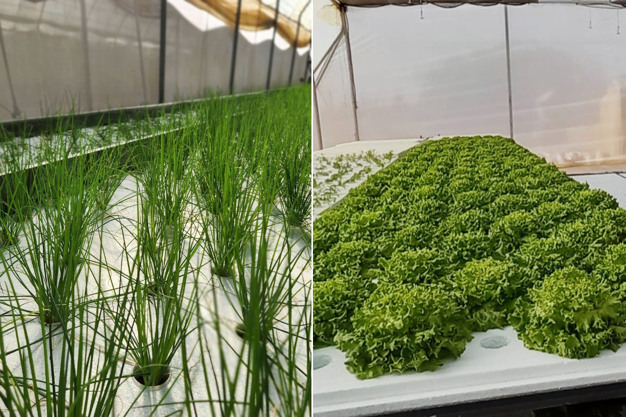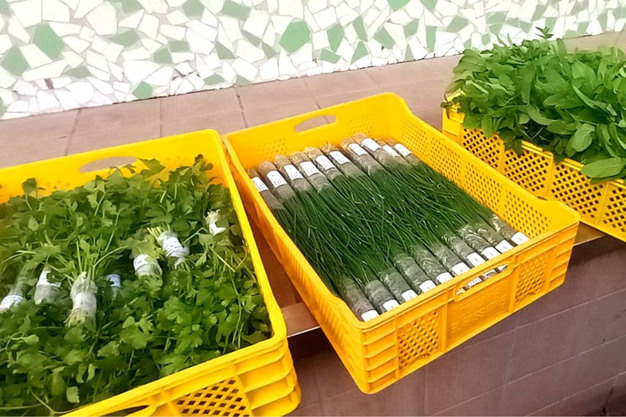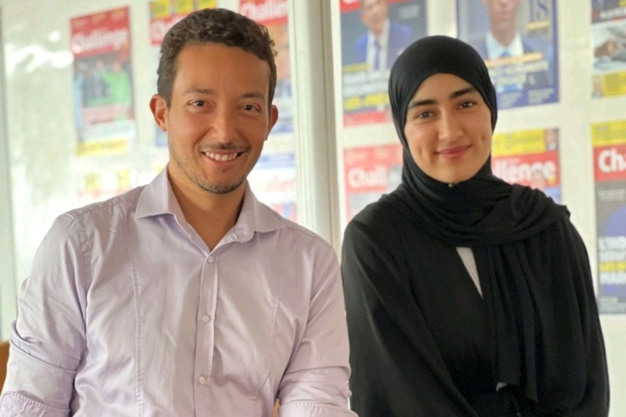Jodoor, a young Moroccan growing company, has opted for hydroponics as an answer to water stress. "Climate constraints and the scarcity of water resources force us to adapt, and hydroponics are an effective way for many products," says Sokayna Bellam, the company's co-founder.

According to Bellam, "hydroponics make good economic sense in Morocco thanks to its superior resource efficiency, even when compared with the low-cost Canarian sheds most used in the country." She adds, "Canary shelters often meet short-term economic needs, but it's crucial in a country where water is precious to guarantee stable, high-quality production in optimized quantities. This is what hydroponics offers, alongside meeting growing consumer expectations for sustainable, environmentally-friendly products."
"For products such as leafy vegetables, including lettuce, rocket, spinach, or aromatic herbs (mint, parsley, basil, etc.), hydroponics offers excellent yields. Fruit crops such as cherry tomatoes and strawberries also lend themselves well to this method. These products fit in perfectly with local and international market expectations, where quality and freshness are essential," adds Bellam.
Jodoor's founders drew inspiration from the success of vertical farming in other parts of the world. "We've seen pioneering hydroponic models from countries in Northern Europe, notably the Netherlands, and the Middle East, where climatic conditions dictate innovative solutions and farmers have turned environmental challenges into opportunities. These countries have demonstrated that hydroponics is a mature and adaptable technology, with a significant impact on food security and sustainability," the grower shares.

The response in the Moroccan market is encouraging, she reports: "Demand for our products has exceeded our expectations. Our market is quite diversified, including a premium segment, such as high-end restaurants, supermarkets, and specialized distributors, but also small retail outlets. Our products are attracting attention thanks to their consistent quality and durability. We're also seeing curiosity and a desire to understand how hydroponics can be implemented in Morocco. In this sense, we see our products as ambassadors for a new way of farming that is both planet-friendly and forward-looking."
Strong demand has prompted the young company to move up a gear: "After starting on a 697 m² pilot farm, we're increasing our surface area considerably to reach 3485 m² by the two months. We've achieved a yield of 4 kg/m² per season with an average of 8 cycles per year, reducing water consumption by 80% compared with traditional farming."

"This season we are growing a variety of leafy vegetables, including several varieties of lettuce, but also aromatic herbs such as mint, coriander, and celery. These products are not chosen randomly, they reflect the needs of the Moroccan and Middle Eastern markets, while being healthy, fresh, and traceable. The reduced environmental footprint is an essential asset in a context where consumers are increasingly interested in the impact of their food," Bellam says.
"In tandem with our production expansion, we are exploring the potential of exporting to Europe and the Middle East," she concludes.
For more information:
Sokayna Bellam
Jodoor
+212 639-941467
sokaynabellam@gmail.com
